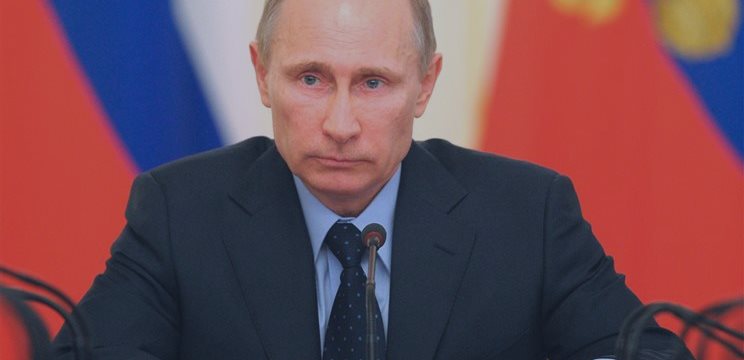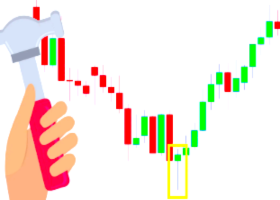The Russian president, who is speaking at his annual press conference today at 12:00 Russian time, is likely to avoid any dramatic steps such as firing Prime Minister Dmitry Medvedev, according to former and current Kremlin advisers. The economy and international affairs will be key topics and Putin expects to answer tough questions, his spokesman Dmitry Peskov said yesterday.
Political analysts in Moscow say Putin has little to offer beyond words to Russians reliving memories of the financial crisis that wiped out their savings in 1998, the year before he came to power.
“The president doesn’t admit his mistakes because he would see this as a public humiliation,” said Stanislav Belkovsky, a Kremlin adviser in Putin’s first term who now consults for Moscow’s Institute for National Strategy, a research company. “He will blame the crisis on the West, which is in conflict with us.”
Since Russia annexed Ukraine’s Crimea peninsula in March, Putin's ratings have been unprecedentedly high. He brushed off U.S. and EU sanctions in response to the action, saying in his annual address to parliament and top officials on Dec. 4 that Russia’s former Cold War enemies would have “come up with some other excuse” to contain the country if the crisis had not occurred.
Since June the Russian ruble has lost more than 40 percent of its value amid the slide in the price of oil, and the financial meltdown isn’t close to ending, economists say.
"The markets have stopped believing that the central bank and government understand what they are doing,” Sergei Guriev, a former economic adviser to Medvedev who now teaches at Sciences Po in Paris, said in an interview with Dozhd television on Dec. 16.
Yesterday Putin's press secretary Dmitry Peskov said the president is capable of leading the country out of the current difficulties like he did during the global financial crisis in 2008.
“There are crisis times when you have to roll up your sleeves,” Peskov said in an interview with Rossiya 24 state television. “In 2008, as you remember, Putin came out and said ‘It’s a crisis, and I take responsibility and everything will be fine!’ Did everything turn out ok? Yes it did.”
On December 16, after an emergency meeting, the central bank announced the largest interest rate rise since Russia’s 1998 default, increasing the key rate by 6.5 percentage points to 17 percent. The move failed to stop the plunge of the ruble, which at one point during the day fell to a record of 80 per dollar, from 34 half a year ago. It rebounded 12 percent yesterday after the Finance Ministry pledged to use as much as $7 billion to support the currency. It strengthened 1.9 percent to 59.1 in Moscow today.
The central bank also announced steps yesterday to stabilize the banking system, including allowing lenders to use a third-quarter exchange rate - before the acceleration in the ruble’s decline - to value risk-weighted assets.
The country’s reserves have declined by about a fifth to $416 billion over the past year as the central bank tried in vain to defend the currency. As consumers feel the effects of accelerating inflation, which rose to 9.1 percent in November, the fastest since June 2011, the economy may shrink almost 5 percent next year if oil prices stay at $60, the monetary authority predicted last week.
The crisis may prompt Russia to resort to some form of capital controls, requiring exporters to sell part of their foreign currency earnings, according to Alexei Mukhin, head of the Center for Public Information, an independent consultancy in Moscow.
Any blanket ban on capital leaving Russia or foreign exchange restrictions would only cause more panic, Mukhin said. Most important is the need to replace the “ineffective” government, he said.
Major exporters agreed to cut their foreign exchange holdings to the level of Oct. 1 this year by March 1, 2015, at a meeting yesterday with Medvedev, Vedomosti reported today, citing two unidentified people present at the discussion.
Medvedev told his first deputy Igor Shuvalov yesterday to carry out daily oversight of currency sales by major exporters in conjunction with the central bank and the Federal Financial Monitoring Service.
“It’s in our common interest to bring order to the foreign-currency market as quickly as possible,” the premier said at a meeting with ministers, the central bank governor and heads of exporters. “It makes no sense to introduce extremely tough regulation.”
Former Finance Minister Alexei Kudrin, who steered Russia’s finances during Putin’s first decade in power when rising oil prices fueled economic growth, hasn’t been offered the job of prime minister, his spokesman said on Dec. 16, according to RIA Novosti.
A decision by Putin to appoint Kudrin would mark a decisive move toward a free-market approach to the crisis and efforts to mend ties with the U.S. and Europe, said Masha Lipman, an independent political analyst in Moscow. Another option would be to swing to the opposite political extreme by choosing someone who supports economic isolationism and an uncompromising policy on Ukraine, she said.



